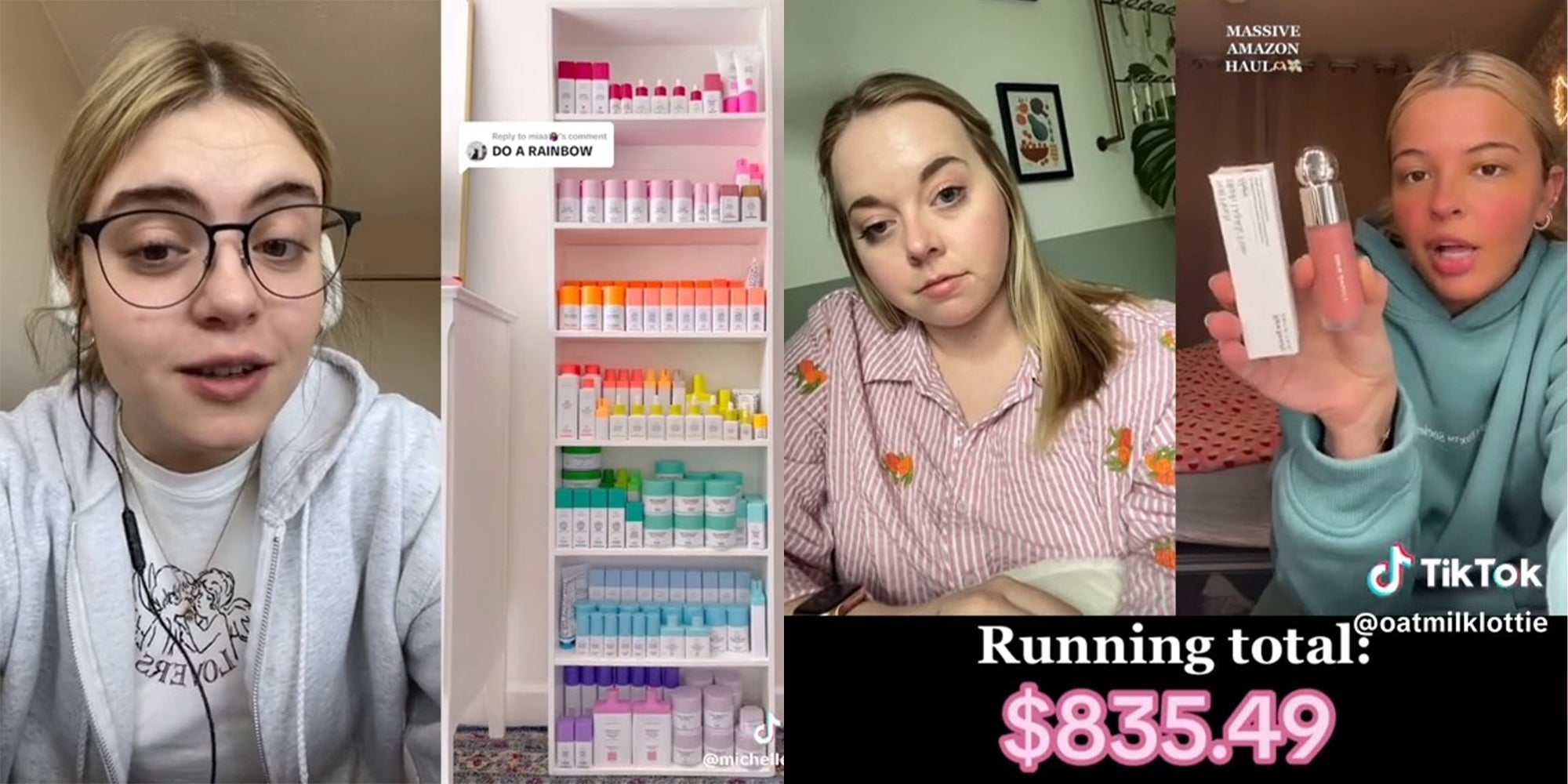De-influencing to combat overconsumption is booming on TikTok

De-influencing, or the practice of telling viewers what *not* to buy rather than what they should be buying, took over TikTok earlier this year. In addition to helping TikTokers sift through the barrage of product recommendations they scroll past on a daily basis, de-influencing can also aid in quelling one of TikTok’s largest issues: overconsumption, or buying things we don’t need simply because we’ve seen people rave about them on the app.
And though the amount of de-influencing TikToks I’ve seen on my FYP have slightly petered out, de-influencing focused TikTokers Michelle Skidelsky and Lottie (AKA @OatMilkLottie) have continued the charge using unique strategies: Instead of talking about products they’ve used and disliked, Skidelsky and Lottie make videos about products that they’ve never owned and explain why they’re not necessary and/or not worth the money.
You may recognize Skidelsky from her recent de-influencing video about an influencer’s TikTok that shows a shelving unit that holds over a hundred Drunk Elephant skincare products arranged into a rainbow.
“Here is your daily reminder that this is not normal,” Skidelsky says about the influencer’s Drunk Elephant collection. “There’s no reason why your home needs to look like a Sephora.”
Skidelsky’s other videos focus on why the products shown in other influencer’s hauls are not must-haves: She discusses why she would “never use” the items shown in a travel must-haves haul, posits that the home appliances shown in an Amazon home finds haul are probably “so expensive” for what they are, and points out that “cute” Amazon decor is mostly “impractical.”
Lottie takes a more numerical approach. In her famous “Influencer Duets” to educate consumers, she tallies up the cost of their hauls, many of which are around one thousand dollars, to draw attention to the amount of money being spent on viral items. Commenters on Lottie’s videos have said that her videos help them “make more intentional choices” when shopping.
“Overconsumption is this generation's epidemic,” a commenter wrote on one of Lottie’s TikToks.
Why it matters
Overconsumption isn’t just problematic on TikTok and for our wallets. Increased demand because of hauls and viral products leads to further labor exploitation, ever-growing landfills, and environmental degradation. So next time you see an influencer raving about the cutest pink mini-stapler they found on Amazon, think twice about the myriad of human, environmental, and financial costs associated with it before you add it to your cart.
Sign up to receive the Daily Dot’s Internet Insider newsletter for urgent news from the frontline of online.
The post De-influencing to combat overconsumption is booming on TikTok appeared first on The Daily Dot.
dailynoti coindeskcrypto cryptonewscrypto bitcoinmymagazine mybitcoinist cryptowithpotato mycryptoslate fivenewscrypto findtechcrunch journalpayments nulltxcrypto newsbtcarea


Post a Comment